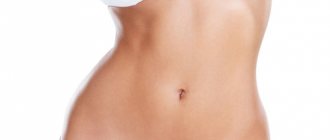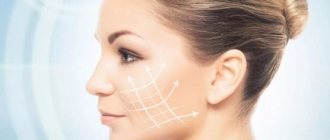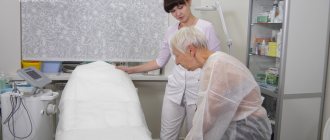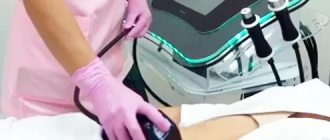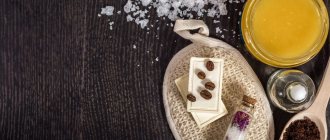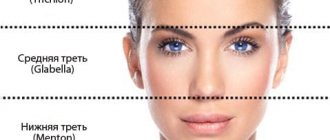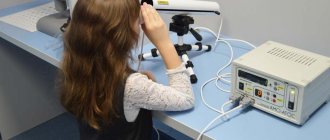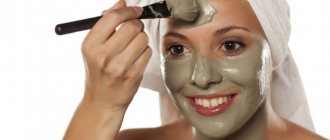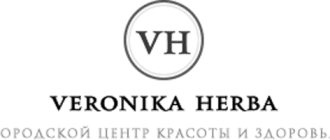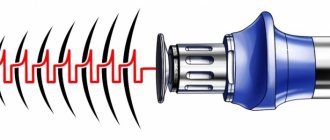In order to be beautiful, women must take care of the freshness and youth of their facial skin. There are various techniques to help keep it in good condition: both traditional and a little unusual. The latter include hirudotherapy, which is a system of influencing the body with leeches specially designed for this purpose. Initially, this type of annelid was used primarily as a remedy. Indications for hirudotherapy include cardiovascular, nervous diseases (sleep disorders, migraines, radiculitis, neuritis, neuralgia of various origins, neuroses and autonomic disorders), diseases of the spine and joints, etc. But recently, the so-called hirudocosmetology, which deals with skin problems, including those associated with age-related changes, has become increasingly popular. To date, the effectiveness of leeches in the fight against wrinkles and other signs of aging has been proven by numerous positive reviews.
What are these creatures?
Previously, leeches were found everywhere - in swamps, in reservoirs, and were not a curiosity to anyone.
Today, the number of these creatures has decreased significantly, and not everyone has seen them in their natural form.
Despite the fact that leeches live in the aquatic environment, no one specifically catches them for use for cosmetic purposes, since creatures bred artificially in laboratory conditions are used for this.
Leeches belong to the class of annelids. These representatives have a rounded-elongated body, slightly flattened on the sides.
It is crowned with suckers at both ends: the anterior nipple is equipped with a sucking cavity.
These individuals are extremely voracious. In a hungry state, they weigh no more than 2 grams, and after drinking blood, they increase 10 times.
Conclusion
Hirudotherapy is the treatment of various diseases using medicinal leeches. Girud is the scientific name of the medicinal species. If your hematopoietic organs work normally, such losses do not pose a threat to the body.
You should know that they suck out stagnant blood, which is already saturated with harmful decomposition products. Removing such fluid helps the body establish normal blood supply to the affected tissues and organs.
During therapy, the patient must be under constant medical supervision, since the “little animal” can independently move to another place if used uncontrolled. Be careful, take care of your health!
Subscribe to my blog and you will never miss new articles dedicated to the beauty and health of your face!
Is it possible to rejuvenate with leeches?
According to numerous enthusiastic female reviews, leeches on the face for wrinkles and other skin defects really turn out to be effective.
This applies exclusively to medicinal leeches grown artificially. Unlike wild ones, they are sterile. They are used once, which ensures the safety of such a procedure.
Do not try to rejuvenate yourself using leeches caught in a pond. This can cause significant harm to health, since such leeches often cause infection.
For medical purposes, leeches are taken, the species of which is called Hirudo medicinalis. They secrete saliva, which contains special enzymes (hirudin, hyaluronidase, aspirase, etc.).
Hirudotherapy in cosmetology is a new direction, but shows good results:
- smoothes wrinkles;
- restores facial turgor;
- relieves acne;
- eliminates swelling and irritation of any etiology;
- discolors pigment spots;
- normalizes blood microcirculation in the surface layer of the epidermis;
- renews tissue at the cellular level;
- enhances protective functions from negative external factors;
- improves oxygen exchange in the skin layers with deeper penetration.
By sucking, the leech releases saliva into the dermis, along with which multiple beneficial enzymes and biochemical elements penetrate.
Due to this, the blood composition is enriched, metabolic processes are normalized and the body is renewed from the inside.
After hirudotherapy sessions, the skin acquires: a silky and elastic structure, healthy color, elasticity and smoothness.
Leeches on the face help against acne, scars and other external defects. But the main purpose of leeches on the face is to get rid of wrinkles (before and after photos of many women are direct proof of this).
When visually comparing the image before the start of the course of hirudotherapy and upon completion, the transformation for the better is clearly noticeable.
Types of wrinkles and mechanisms of their occurrence
The first metamorphoses of the skin occur from the age of 20. Even then, superficial wrinkles appear on the face, caused by increased tone of the facial muscles and dryness of the integument. They straighten out easily, which is why they are called dynamic - the skin has not yet lost its compensatory resources and is able to recover on its own.
Dynamic wrinkles make themselves felt during moments of emotional expression and hide when the facial muscles are at rest.
A little later, after thirty years, processes begin in the thickness of the dermis that affect its qualitative characteristics. The abundance of negative factors that accompany our lives - stress, lack of sleep, poor environment, harmful production and adverse weather conditions, poor nutrition, deficiency of vitamins and microelements, inactive lifestyle, bad habits, chronic diseases - place a serious burden on the body and significantly undermine it. regenerative capabilities.
Impaired blood supply and metabolic processes lead to insufficient nutrition of the dermis, facial muscles and subcutaneous fat. The result is the following changes:
- Due to the reduction in the production of hyaluronic acid, which holds water molecules in cells, the dermis becomes thinner and dehydrated.
- The sebaceous glands malfunction, and a hydro-lipid film on the surface of the skin no longer forms - this leads to dryness.
- The stratum corneum thickens, so the skin, losing its ability to renew itself, begins to become rough and flaky.
- As a result of disruption of the synthesis of collagen and elastin proteins, the integument becomes flabby and loses its tone - a network of deep (static) age-related wrinkles gradually captures the face.
- Atrophic processes in the subcutaneous fat layer force the skin, which has lost its former elasticity, to slide down, thereby disrupting the oval of the face and forming gravitational wrinkles.
While facial wrinkles can be easily dealt with by providing the skin with proper care and massage, age-related and gravitational wrinkles cannot be easily dealt with - this will require a set of measures, including expensive salon procedures.
Gravity wrinkles are the most difficult to correct and hirudotherapy alone is not enough - this is a generalized process when tissues that have lost their tone put pressure on the adjacent ones and cause further “sliding” of the entire face
Skin defects are also classified according to location. What kind of wrinkles do not form during life:
- “alarming” - horizontal furrows on the forehead;
- “angry” - wrinkles in the area of the bridge of the nose;
- “sorrowful” - folds running from the wings of the nose to the corners of the lips;
- “purse string” - small vertical creases framing the lips;
- “puppet” - furrows from the corners of the mouth to the chin;
- “rabbit” - oblique wrinkles on the side walls of the nose;
- “crow’s feet” - they are also “rays of happiness” diverging from the corners of the eyes when smiling;
- “Venus rings” adorn the aging neck.
Beautiful ladies, who believe that the memory of joyful moments experienced should be kept in an album with photographs, and not on their faces, are trying different ways to erase these traces. Some do not disdain such a unique method as hirudotherapy, and rush to make appointments at cosmetology clinics in order to feed the leeches their blood to their fill.
Unattractive creatures have a miraculous rejuvenating effect thanks to the enzymes of the salivary glands, which begin to be produced by the body of predators in the process of digesting the blood of their victims. The latter, in exchange for several tens of milliliters of blood, become the owners of a smooth, elastic, ruddy and toned face.
Properties of leeches
According to cosmetologists and doctors, the fundamental benefits of leeches on the face and the minimum of harm are caused by the wide range of healing properties of the salivary secretion of these bloodsuckers. These include:
- anti-inflammatory;
- pain reliever;
- antimicrobial;
- nutritious;
- regenerating;
- antiseptic;
- anticoagulant.
Hirudotherapy is the best preventive remedy against the manifestation of early signs of aging, somewhat reminiscent of acupuncture.
The use of leeches to restore youth requires a competent approach, so they should only be administered by a specialist.
Achieving the desired result is only possible if you know where to place leeches on the face for wrinkles - these slimy creatures must bite the skin in specific areas.
Hence the conclusion that it is important not only the entry of leech secretion into the blood, but also the reflex effect.
Contraindications
Despite the enormous benefits of leeches for facial skin, there are a number of contraindications to hirudotherapy. Under no circumstances should leeches be applied to:
- allergic reactions to components of their saliva;
- decrease in hemoglobin level to 100 g/l and below;
- pathologies of the blood coagulation system (hemophilia, thrombocytopenia, thrombocytopathy and other conditions with increased bleeding);
- low blood pressure;
- physical exhaustion, sudden weight loss;
- mental disorders;
- malignant neoplasms;
- bearing and feeding a child.
In addition, it is impossible to treat facial skin with leeches in the first weeks of the postoperative period. This applies to any surgical intervention – not necessarily plastic surgery. At this time, you must strictly follow all the doctor’s instructions that he gives for rehabilitation.
Question answer
If the temperature does not subside, and the tumor grows at the site of the bites, causing general malaise and weakness, then you should go to the doctor. Antihistamines are mainly prescribed externally. Fenistil-gel is suitable, which is applied to problem areas. Such manifestations are not considered allergic and the procedures are not cancelled. No further complications arise. For more severe consequences (Quincke's edema, urticaria), medical intervention cannot be avoided.
You should be concerned when blood does not stop oozing for more than 2 days. This is evidence of slow blood clotting and you should consult a doctor.
They adhere to the course approach - 2 times every 7-8 days, for a month.
Side effects
Substances contained in the saliva of leeches can be warily perceived by the body, and this will provoke a protective reaction of the immune system:
- edema;
- redness;
- itching;
- increase in skin temperature in affected areas;
- enlargement and inflammation of nearby lymph nodes (lymphadenitis);
- bleeding;
- bruises and scars after leech bites;
- a short-term decrease in blood pressure and, as a result, weakness, dizziness and darkening of the eyes.
Such phenomena are called natural prefix reactions. They do not pose any threat, they do not require special treatment, so the course of procedures can be safely continued, and then the listed symptoms will very soon lose their intensity.
Bloodletting in itself has a healing, rejuvenating effect - it frees the body from stagnant blood and toxic substances, stimulating hematopoietic processes and cellular renewal.
A typical example of the reaction of the nervous system to leech enzymes is redness on the skin in the form of a ring, in the center of which there is a characteristic bite mark a la Mercedes.
Antihistamines - Diazolin, Claritin, Tavegil, Suprastin - will help reduce the manifestations of the post-additional symptom complex during hirudotherapy. For topical use, insect bite repellents that relieve itching and accelerate healing, for example, Spasatel, Fenistil-gel, are suitable.
Usually the itching stops after a couple of days, the lymph nodes return to normal after two weeks, but the bleeding can drag on for up to several hours, so you shouldn’t sound the alarm bell, but you need to take into account that sometimes a year passes until the scars completely resolve, and this is especially It is important if the face is chosen as a target for brutally hungry leeches - the size of the scar directly depends on the size of the leech.
Extensive hematomas are not considered a complication, but are catalysts for other problems in the body - possible problems with the liver, pancreas, blood clotting
Attention! The severity of the prefix reaction can be predicted by using the dermographism test. This will help to understand the response of the autonomic nervous system to mechanical stress. To do this, you need to run the back of the pencil along the surface of the skin, applying some force. A bright red trace that persists for several minutes will eloquently indicate a high risk of the occurrence of the listed elements of the post-prefix reaction.
Video: doctor about side effects and prefix reaction
What are the advantages and disadvantages of this method
No matter how unique the technique is, there are always certain contraindications. To fully evaluate this approach, it is necessary to analyze it from all sides.
The advantages and disadvantages of hirudotherapy are given in the table:
| pros | Minuses |
| Naturalness. | Immediately after removing the material, minor wounds and swelling remain. |
| Long lasting rejuvenating effect. | Brief bleeding from the bite sites is possible. |
| Favorable effect on the body as a whole. | After healing, sometimes dark pigment spots remain (disappear after 2-3 weeks). |
| It has a number of medical contraindications. |
Complications
The secretory fluid secreted by the salivary glands of the leech contains protein. It can provoke both local allergic reactions (swelling, itching, rash) and dangerous ones - Quincke's edema, anaphylactic shock.
In addition, the following undesirable effects are possible:
- the appearance of a hematoma, bruise, bruise at the site of the bite;
- external and internal bleeding - especially in persons who ignore contraindications to the procedure;
- inflammation of adjacent lymph nodes;
- infection of the wound - more often if the rules of care are not followed.
Hirudin slightly reduces blood viscosity. It can flow out of the wound for quite a long time. The normal duration of bleeding is up to 24 hours. There is no significant blood loss observed. Otherwise, you need to seek medical help.
Where are leeches placed?
Planting leeches on the face requires preparation. The first thing you need to do is visit a doctor in this area to rule out medical contraindications. During the inspection, he will mark the areas where the leeches will attach.
The day before your scheduled session, you should not drink alcoholic beverages or eat strong-smelling foods.
Do not smoke for several hours before hirudoplasty. It is not advisable to use cosmetics with strong fragrances on this day. Leeches are extremely sensitive to strong odors.
That is why the doctor initially cleanses the skin with neutral products. It is necessary to ensure that the specialist performs all actions wearing gloves.
A special syringe is used to transfer the leech to the skin.
The patient is placed in a comfortable lying position, and the specialist begins work. First, the natural material is attached behind the ears, then distributed in stages to other points:
- on the jaw - right and left;
- in the area between the eyebrows;
- along the nasolabial folds;
- along the contour;
- on the border area between hair and forehead;
- in the corners of the eyes.
During the procedure, it is strictly forbidden to tear off the leeches by force - after a maximum of half an hour they fall off on their own.
To remove an individual, touch it with a swab soaked in alcohol. Blood usually comes out of the remaining punctures, but not for long - no more than 20-30 minutes.
A sterile gauze bandage is applied on top, which is removed after 15-20 minutes. Cotton swabs are attached to its place and secured with adhesive tape.
It is advisable not to get up suddenly, but to lie down for a while to avoid dizziness.
The number of sessions in each case is determined by the doctor depending on individual characteristics and the planned result.
If there are no visible signs of aging yet, then 5-6 times will be enough for prevention. Full treatment includes 10 procedures.
A visible transformation is noted after the first 2-3 approaches. But this doesn't mean you can stop. After completing the course, the effect lasts for about six months. It is allowed to repeat no earlier than after 4 months.
How does a hirudotherapy session work?
Before prescribing hirudotherapy, the doctor examines the face to make sure there are no open lesions (ulcers, wounds). It is recommended to review any medications you are taking that increase the risk of bleeding or decrease the immune response. Caffeine should be avoided during and until completion of therapy to reduce the risk of vasospasm. Smoking and the use of nicotine substitutes are contraindicated during therapy due to the vasoconstrictor effects of carbon monoxide and nicotine.
Carrying out the procedure
The recommended course of rejuvenating procedures is 6–10 sessions of hirudotherapy with breaks of 3–4 days. The patient's position during the session should be as comfortable as possible for a comfortable stay for an hour. The algorithm of actions of a hirudotherapist is approximately as follows:
- Before applying the leech, the skin is washed with neutral soap and rinsed with sterilized water. Wipe dry.
- The therapist wears medical gloves and uses a pair of long, non-toothed forceps to remove the leech from its container. This is easier to do immediately after removing the container from the refrigerator, when the leeches are relatively docile.
- Then the leech is placed in a 5 cm plastic syringe (with the tip previously removed) and inverted over the treatment site.
- When the leech has attached itself, the syringe can be removed. To prevent the leech from moving and to calm the patient, you can use a soaked cotton ball and place it under the leech's body.
The leech is planted on a specific area of the face using a plastic syringe
If problems arise with attachment, the doctor may make a small puncture of the skin. The released drop of blood will stimulate the attachment of the geruda. The medicinal leech has three jaws with tiny teeth, with which it pierces the human skin and injects its own saliva, which has a healing effect. After the leech has finally attached and the sucking process has begun, the patient may feel a slight local burning sensation similar to a nettle burn. But after a few minutes, the natural pain-relieving components of saliva begin to act and the discomfort stops.
The leech releases about 60–70% of its medicinal substances in the first 10–15 minutes of the session. But in order for the patient to receive the full dose of enzymes, the procedure should last about 45 minutes. During this time, one leech manages to suck up to 15 ml of blood, after which it independently detaches from the wound. In case of reluctant detachment of the leech, use a 5% solution of benzoylecgonine externally to paralyze. Forced removal of a creature with tongs is never used.
A persistent reluctance of a leech to attach or detach indicates dying tissue or insufficient tissue nutrition.
Bite wounds will bleed for up to 10 hours after completion of the session, which is normal after the administration of hirudin, which has a blood thinning effect. During this time, the skin should be regularly washed with a disinfectant solution or protected by applying an aseptic dressing. After a few days, the wounds gradually close and then disappear without a trace, leaving no marks or scars.
Leeches should never be used repeatedly, even on the same patient, to avoid the transmission of bloodborne infections. After one-time use, leeches are disposed of as biohazardous waste. They are destroyed by immersing them in a 7% ethanol solution for five minutes before euthanizing them with 70% ethanol alcohol.
Is it possible to carry out the procedure yourself?
Of course, any person is theoretically capable of conducting a session on their own if they first learn the nuances of this rejuvenation.
But most experts will recommend trusting a professional. The fact is that the procedure has many nuances. You need to know where to place the leeches correctly; besides, they are not entirely obedient.
At home, you may not be able to maintain 100 percent sterility. Therefore, the risk of infection increases. It’s better not to take risks, but to go to a clinic for hirudotherapy.
Necessary Precautions
It is mandatory to follow certain safety rules when conducting gyroduplasty sessions:
- They do not make any effort to detach the leech - once it is satiated, it spontaneously falls off. This usually takes no more than an hour.
- Do not take any action to stop bleeding from wounds if it lasts less than 2 days. This is a natural phenomenon.
- The crusts that subsequently form on the skin are not picked, but wait for them to heal naturally. During this time, try to take baths less often.
- Leeches are used only once and then destroyed.
Efficacy of therapy
The benefits of leeches in medicine are also undeniable. They are used to implant complex skin implants and grafts. They stick to the skin of their victims using a suction cup. After 20-45 minutes of rest on the skin, they come off on their own, which is a sign of saturation with blood. Indeed, in some cases, the implanted skin or meat flap does not have the ability to control the inflow and outflow of blood, which leads to the destruction of the graft.
- establish the sucking pathway (degradation of the extracellular matrix);
- inhibit (delay) adhesion, aggregation and coagulation (inhibition of platelet functions);
- improve blood circulation;
- enhance antimicrobial activity;
- provide analgesic and anti-inflammatory effects.
Expert opinion
- Cosmetologist
- Surgeon
Michelle Ellern
practicing cosmetologist-dermatologist
You shouldn’t put leeches unless you really want to, if you’re squeamish. The negative experience you experience does not contribute to achieving the desired result, so there will be no benefit anyway.
Theda Contis
plastic surgeon
After removing leeches, do not scratch the itchy wounds. A jump in body temperature is likely, but this is a normal response of the body - no measures need to be taken.
Reviews
In addition to everything that has been said about leeches on the face for wrinkles, here are some reviews and photos before and after rejuvenation.
MARIA, 45 YEARS OLD:
“Since I am wary of plastic surgery, hirudotherapy seemed like a completely acceptable alternative to me.
I don’t have an aversion to leeches, so that wasn’t a problem. Literally after the third session, I was surprised by the changes that I noticed on my face - the nasolabial folds smoothed out significantly and became less noticeable, the crow's feet under the eyes also practically disappeared.
After completing the course, I became so rejuvenated that my friends stopped recognizing me.”
EKATERINA, 50 YEARS OLD:
“I am familiar with leeches firsthand - I constantly undergo course therapy using them.
At first I looked at a photo of where leeches are placed on the face for wrinkles. Armed with the information, I went to the doctor. Now I undergo the procedure regularly. I usually rest for 5-6 months between courses. This way you can keep your face toned. After these bloodsuckers, the skin smoothes out and the swollen semicircles in the eye area disappear.
Changes occur not only outside, but also from the inside - overall well-being improves significantly. Cosmetologists advise resorting to such therapy at least once a year.”
Indications for treatment
- Chronic skin diseases such as scabies, psoriasis, eczematous dermatitis, chronic ulcers, reddish freckles and favus;
- Phlebitis and thrombotic conditions;
- Coronary artery thrombosis and coronary heart disease;
- Wounds. Wound care and healing of severed limbs such as fingers, toes and ears;
- Pain and inflammation of the tissue. To relieve pain and reduce inflammation in conditions such as osteoarthritis;
- Asthma, acute nasopharyngitis (nasopharynx) and spasmodic runny nose;
- Hematoma;
- Gum disease;
- Hypertension, migraine, phlebitis, varicose veins, arthritis, hemorrhoids, ovarian cyst.
The duration of the course of treatment depends on the existing problem, sometimes 1 session is enough for the sake of prevention. After each session, it is recommended to take a break of 3 to 7 days. The frequency of repetitions is considered individually.

